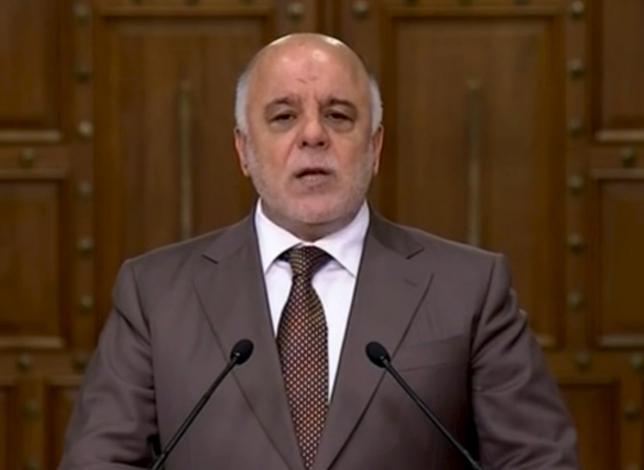US says Iraq's PM in 'strong position' amid political unrest
STUTTGART: Iraqi Prime Minister Haider al-Abadi is in a strong position despite political unrest in Iraq, thanks in part to battlefield successes and his commitment to a multi-sectarian state, US Defense Secretary Ash Carter said on Monday.
"He seems to be in a very strong position. Obviously we support him strongly because of what he stands for," Carter told reporters travelling with him shortly before landing in Germany.
Carter's full-throated backing of Abadi, one of his most forceful to date, follows months of intense Iraqi political wrangling that has put the country on edge.
Abadi has attempted to replace party-affiliated ministers with technocrats as part of an anti-corruption drive. A divided parliament has failed to approve the proposal amid scuffles and protests.
"Prime Minister Abadi stands for and has been a partner in all of the things that are important to Iraq's future, namely a country that holds together and doesn't just spiral off into sectarianism," Carter said.
Corruption became a major issue after global oil prices collapsed two years ago, shrinking the state budget at a time when it needed additional income to wage war against Islamic State.
"That's why it's so important for the international community to help and support the Iraqi government at this time," Carter said, ahead of talks in Europe this week with allies in the campaign against Islamic State.
The militants have been retreating since December, when the Iraqi army recaptured Ramadi, the largest city in the western region. Last month, the army took the nearby region of Hit, pushing them further north along the Euphrates valley.
The United States is leading a coalition effort to help Iraq drive back the group. But US officials acknowledge that military gains, including Iraq's recapture of the city of Ramadi and Hit, are not enough.
Experts point with anxiety to Iraq's unrelenting political infighting, corruption, a growing fiscal crisis and the Shiite Muslim-led government's fitful efforts to reconcile with aggrieved minority Sunnis, the bedrock of Islamic State support.
Three bombs went off in and around Baghdad on Monday, killing at least 14 people. The largest blast, which Islamic State said it was behind, came from a parked car bomb in the Saydiya district of southern Baghdad.






